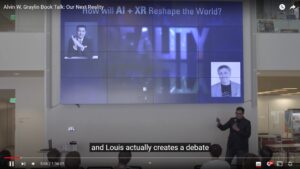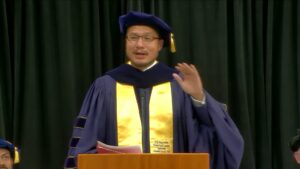
Leading AI expert Alvin Wang Graylin, on the road to the World Economic Forum in Davos, discusses how China will be one of the AI dark horses to watch in 2026, as he tells at the Big Bang Tech Report. He points at Minimax, Moonshot, and Z.AI, and also on the hardware side, Huawei, he adds.
Alvin Wang Graylin is a speaker at the China Speakers Bureau. Do you need him at your meeting or conference? Do get in touch or fill in our speakers’ request form,
Are you looking for more innovation experts at the China Speakers Bureau? Do check out this list.
















